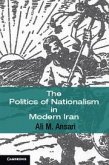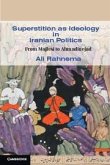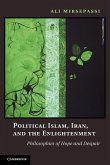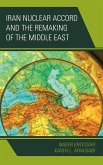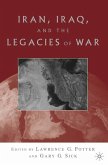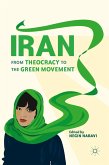Distinguished historian Ali M. Ansari explores ideas about nationalism that emerged in post-Enlightenment Europe and applies them to a non-European state. Charting a course through twentieth-century Iran, he analyses the impact of these ideas on different regimes and their historiographical and political connections. He concludes that revolutionary developments in the early twentieth century paved the way for later radicalisation.
The first full-length study of Iranian nationalism in nearly five decades, this sophisticated and challenging book by the distinguished historian Ali M. Ansari explores the idea of nationalism in the creation of modern Iran. It does so by considering the broader developments in national ideologies that took place following the emergence of the European Enlightenment and showing how these ideas were adopted by a non-European state. Ansari charts a course through twentieth-century Iran, analysing the growth of nationalistic ideas and their impact on thestate and demonstrating the connections between historiographical and political developments. In so doing, he shows how Iran's different regimes manipulated ideologies of nationalism and collective historical memory to suit their own ends. Drawing on hitherto untapped sources, the book concludes that it was the revolutionary developments and changes that occurred during the first half of the twentieth century that paved the way for later radicalisation.Distinguished historian Ali M. Ansari explores ideas about nationalism that emerged in post-Enlightenment Europe and applies them to a non-European state. Charting a course through twentieth-century Iran, he analyses the impact of these ideas on different regimes and their historiographical and political connections. He concludes that revolutionary developments in the early twentieth century paved the way for later radicalisation
Hinweis: Dieser Artikel kann nur an eine deutsche Lieferadresse ausgeliefert werden.
The first full-length study of Iranian nationalism in nearly five decades, this sophisticated and challenging book by the distinguished historian Ali M. Ansari explores the idea of nationalism in the creation of modern Iran. It does so by considering the broader developments in national ideologies that took place following the emergence of the European Enlightenment and showing how these ideas were adopted by a non-European state. Ansari charts a course through twentieth-century Iran, analysing the growth of nationalistic ideas and their impact on thestate and demonstrating the connections between historiographical and political developments. In so doing, he shows how Iran's different regimes manipulated ideologies of nationalism and collective historical memory to suit their own ends. Drawing on hitherto untapped sources, the book concludes that it was the revolutionary developments and changes that occurred during the first half of the twentieth century that paved the way for later radicalisation.Distinguished historian Ali M. Ansari explores ideas about nationalism that emerged in post-Enlightenment Europe and applies them to a non-European state. Charting a course through twentieth-century Iran, he analyses the impact of these ideas on different regimes and their historiographical and political connections. He concludes that revolutionary developments in the early twentieth century paved the way for later radicalisation
Hinweis: Dieser Artikel kann nur an eine deutsche Lieferadresse ausgeliefert werden.



